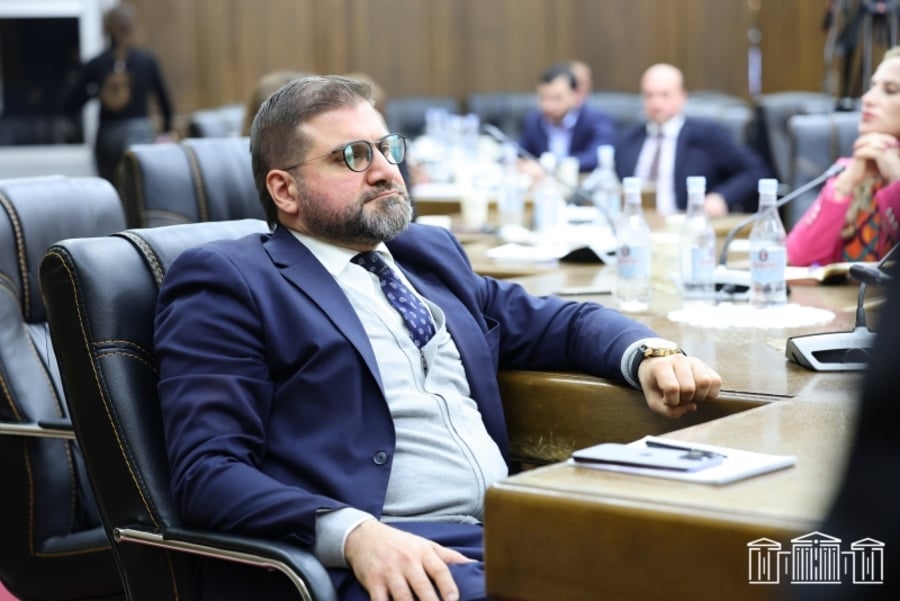Facebook post by Arman Babajanyan, chairman of the “For the Republic” party
The U.S. State Department’s recent decision to suspend all ongoing foreign aid programs and halt the initiation of new ones marks a significant recalibration of American foreign policy, prioritizing national interests above all else. This move, following President Trump’s executive order for a 90-day pause in foreign assistance, is aimed at assessing the alignment and efficiency of these programs with U.S. strategic priorities. As the world’s largest donor of foreign aid, with $68 billion spent in 2023, this policy shift has broad implications, encompassing both development and military assistance. Exceptions have been made only for emergency food aid and military funding to Israel and Egypt.
This redirection of U.S. foreign policy is rooted in three fundamental questions posed by President Trump: does it make America safer, stronger, and more prosperous? The State Department is being reorganized to become more efficient, focused, and flexible, eliminating priorities and practices that do not serve the core national interest. Key objectives include securing borders, curbing illegal migration, and facilitating the repatriation of undocumented immigrants. Additionally, government programs such as “DEIA” initiatives have been canceled, along with political and cultural agendas deemed divisive domestically or unpopular internationally.
The State Department is also shifting its approach to the promotion of free speech and information. Programs that might restrict Americans’ freedom of expression will be discontinued, focusing instead on countering hostile propaganda while reinforcing America’s image as a just, prosperous, and stable nation. Energy policy is another critical area of reform, emphasizing the restoration of American energy dominance while maintaining a commitment to rational environmental protections.
Read also
These changes present a significant challenge for Armenia, which has historically been a recipient of substantial U.S. assistance. While it remains unclear whether this pause will directly impact Armenia, the evolving global geopolitical environment underscores the need for proactive, strategic engagement from Yerevan. Armenia must clearly articulate its role as a valuable partner to the U.S., not only through shared values but also by aligning its contributions with American strategic interests.
The South Caucasus and Central Asia, viewed as a single geopolitical bloc, play a pivotal role in containing the influence of China, Russia, and Iran, particularly in the context of the Middle Corridor. This transport and economic route, connecting East to West via Central Asia, the Caspian Sea, the South Caucasus, and Europe, is of strategic importance as it bypasses traditional routes dominated by these powers. By leveraging the Middle Corridor, the U.S. can counter China’s “Belt and Road” initiative, reduce Russia’s energy hegemony, and limit Iran’s regional influence.
In this context, Armenia’s geographic and strategic position becomes vital. As the sole Christian nation in the region and a bearer of Western values, Armenia can serve as a reliable partner in promoting regional stability, energy connectivity, and economic development. Armenia’s integration into the Middle Corridor strengthens not only its own geopolitical standing but also supports U.S. efforts to establish an alternative, Western-oriented network of trade and energy routes.
For the U.S., a stronger presence in the South Caucasus and Central Asia ensures long-term strategic gains by curbing the monopolistic influence of rival powers. Armenia must capitalize on this opportunity by positioning itself as a key player in the region, capable of contributing to both stability and the realization of U.S. strategic interests.
This requires Armenia to engage in a consistent and strategic diplomatic effort to solidify its partnership with the U.S., emphasizing mutual benefits and shared goals.
Proactively advancing regional peace, stability, and economic initiatives aligned with the Middle Corridor will enhance Armenia’s role as a crucial partner for the U.S., while also attracting foreign investment and reinforcing its own sovereignty and development. In doing so, Armenia not only safeguards its own interests but also becomes an indispensable ally in achieving America’s broader geopolitical objectives.



















































